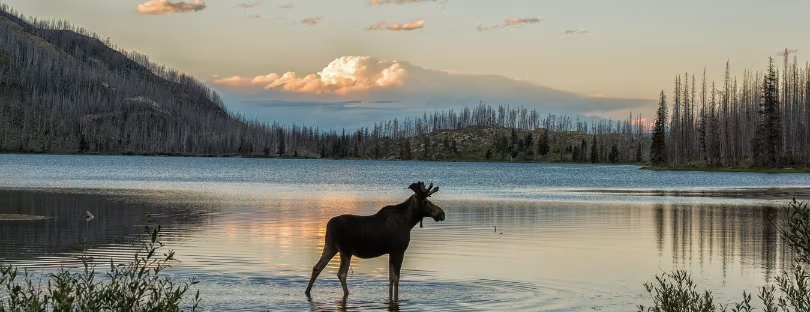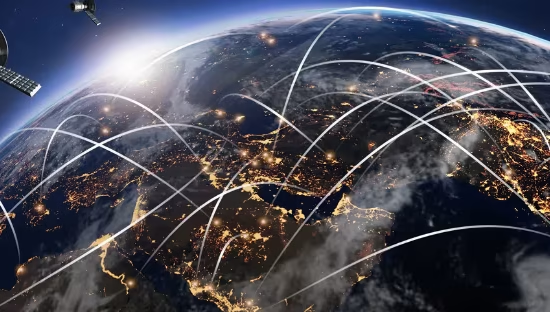
Smart, Slow, and Sustainable: How Travel in 2026 Will Redefine What It Means to “Get Away”
Travel in 2026 is set to look — and feel — a little different. Less about checking off bucket lists and more about checking in with ourselves, our surroundings, and the planet.
According to Expedia Group’s new Unpack ’26: The Trends in Travel report, the coming year will revolve around “smart vacations” — trips that balance curiosity, calm, and conscious choices.
Drawing insights from more than 24,000 travelers across 30 countries and millions of daily searches, the report—compiled by Expedia, Hotels.com, and Vrbo—paints a clear picture: travelers are slowing down. They’re trading crowded landmarks for quiet landscapes, indulgence for intention, and selfies for self-awareness.
The Rise of “Smart Vacations”
At the heart of this evolution is Expedia’s Smart Travel Health Check, a framework designed to spotlight destinations that blend meaningful experiences with responsible tourism.
Inspired by WTTC’s (World Travel & Tourism Council) sustainable travel principles, it recognizes places that manage tourism growth without harming local culture, ecosystems, or quality of life.
“Some of my most unforgettable travel moments come from immersing myself in local cultures, supporting local economies, and exploring less-traveled destinations,” said Ariane Gorin, CEO of Expedia Group. “With one billion monthly searches, Expedia Group isn’t just a travel marketplace — we’re a catalyst for positive change.”
That shift is visible in Expedia’s 2026 Destinations of the Year — a collection of quieter, character-rich destinations such as Big Sky (Montana), Okinawa (Japan), and Savoie (France). These regions not only meet sustainability criteria but also reflect travelers’ growing appetite for authenticity over opulence.
Where Travelers Are Headed Next
Among the standout destinations, Big Sky recorded a +92% increase in searches, making it one of the top rising U.S. travel spots for 2026. Likewise, Okinawa (+71%), Sardinia (+63%), and Phu Quoc (+53%) embody the “beyond the crowds” ethos that defines next year’s travel mindset.
Other notable mentions — Fort Walton Beach (Florida), Ucluelet (Canada), and San Miguel de Allende (Mexico) — show that smaller communities with cultural depth are becoming just as desirable as the world’s classic tourist hubs.
This isn’t simply a pandemic aftereffect. It’s a long-term behavioral shift backed by changing consumer priorities: less consumption, more connection; fewer miles, more meaning.
New Travel Passions: From Fan Voyages to Reading Retreats
One of the most unexpected findings in Unpack ’26 is the rise of Fan Voyages — travel centered around local and cultural sporting events. Whether it’s sumo wrestling in Japan, Muay Thai in Thailand, or the quirky Banana Ball phenomenon in the U.S., over half of global travelers plan to attend a regional sporting event on their next trip.
Meanwhile, Hotels.com taps into nostalgia with its Salvaged Stays trend — hotels reimagined from historic spaces. Think: an old brewery turned boutique hotel in Australia, a former prison in Cornwall, or a school reborn as the elegant Hotel Seiryu Kyoto Kiyomizu. Sustainability, it seems, has never looked so chic.
Vrbo, on the other hand, is championing rest as much as adventure. Its Readaways trend celebrates quiet getaways centered around reading and reflection — a response to the “book club travel” movement sweeping social media. Pinterest searches for “book club retreat ideas” surged 265%, while mentions of “reading retreats” nearly tripled across reviews.
And for those who prefer something even slower, Farm Charm is gaining traction. Agritourism — stays where guests can collect eggs, pick fruit, or stargaze on remote farms — appeals to 84% of travelers surveyed. It’s not escapism anymore; it’s reconnection.
Set-Jetting Still Shines
Not all travelers are going fully off-grid. The Set-Jetting trend — visiting destinations made famous by TV and film — continues to thrive, evolving into an $8 billion travel category in the U.S. alone.
From Tuscany’s White Lotus villas to Yorkshire’s Bridgerton-era estates, travelers are blurring the lines between fiction and reality, chasing cinematic escapism through real-world exploration.
What It All Means: Travel’s Next Chapter
Collectively, these shifts signal a profound evolution in global tourism. “Expedia’s Smart Travel Health Check is a crucial step toward responsible growth models that safeguard communities, protect cultural and natural heritage, and ensure long-term resilience,” said Christopher Imbsen, Vice President of Policy at WTTC.
In other words, 2026 could be the year travel finally becomes a win-win — good for travelers, locals, and the planet.
But Expedia isn’t the only one driving this transformation. Booking.com has also expanded its Travel Sustainable Badge program, rewarding properties that meet eco-friendly standards. Similarly, TripAdvisor’s GreenLeaders and Airbnb’s Sustainable Stays initiatives have begun highlighting hosts and hotels prioritizing energy efficiency, waste reduction, and local sourcing.
What’s unique about Expedia’s approach, however, is scale. With one billion monthly searches and three major platforms under its umbrella, it can influence traveler behavior at a systemic level — nudging millions toward more mindful choices without sacrificing convenience or discovery.
As climate-conscious Gen Z and millennial travelers gain spending power, this direction feels not only inevitable but essential. The global travel industry, worth over $10 trillion according to WTTC projections, is now being reimagined around purpose, balance, and sustainability.
Conclusion: Smart Travel Is Here to Stay
Travel in 2026 won’t be about seeing more — it’ll be about experiencing better.
Platforms like Expedia are no longer just intermediaries between traveler and destination; they’re becoming educators, curators, and advocates for a more balanced global movement.
Whether it’s a reading retreat in Portugal, a repurposed brewery stay in Melbourne, or a slow-food farm escape in France’s Savoie, the message is the same: travel is shifting from consumption to connection.
For travelers — and for the planet — that might just be the smartest move yet.









